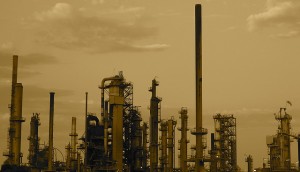The recently announced closure of the Brisbane oil refinery delivered yet another hammer blow to the Australian manufacturing, signalling more shut-downs in the sector.

megan paterson
In an interview for ABC PM, ABC’s business editor Ian Verrender gave his view on the closure of the refinery and the possible ramifications to the country’s economy.
“Well I guess Australia has become a high-cost producer of manufactured goods because we’re not a very big population and what’s really happened in the last few years is the Australian dollar has made us uncompetitive on export markets, but this is a much different situation because this is really all about what economists would call economies of scale, which are simply the size of the industry,” Mr Verrender said.
“In Australia generally our refineries are quite small, they’ve been built for domestic uses; you know, some of them 50 or 60 years old, and what we’re up against now are massive refineries, particularly in Singapore and right throughout the Asian region.”
However, Mr Verrender downplayed the economic implications of the closure of the Brisbane refinery, saying that the country was always reliant on cheap imports from Singapore to satisfy its oil needs.
“We’ve always imported crude oil to put through our refineries. Now we’re simply going to be importing the refined petrol. The argument is that it’s actually much cheaper to import it from Singapore because they’re producing too much of the stuff and so there’s a glut of it out there, and so we’ll be able to bring it in much cheaper.”
He said the Brisbane refinery was out-dated and had a relatively small production capacity of 101,000 barrels of oil a day, which would be covered by imports from Singapore.
“It was a decent size kind of facility back, you know, half a century ago. But if you look at what’s happening in Singapore – and this is where we’re getting most of our fuel now – they’ve got three big refineries in Singapore. The smallest one has got 285,000 barrels a day capacity. Now that’s almost three times the size. The biggest one: 605,000 barrels a day capacity.”
Mr Verrender said the country’s four remaining refineries in Geelong, Lytton, Altona and Kwinana had a bright future ahead of them. Asked about the possible national security implications as a result of the Brisbane refinery closure, Mr Verrender said the risk levels for the country’s energy feed would be the same if it imported crude oil or refined petrol.
“This is an issue that always crops up: our security. But if you have to import the oil in ships anyway to put through your refinery, I can’t see what the difference in security is if you’re importing the fuel in a ship. The way modern warfare is conducted these days, I think they can pinpoint anything with absolute accuracy, so regardless of what a ship is carrying, it could be sunk.”



















